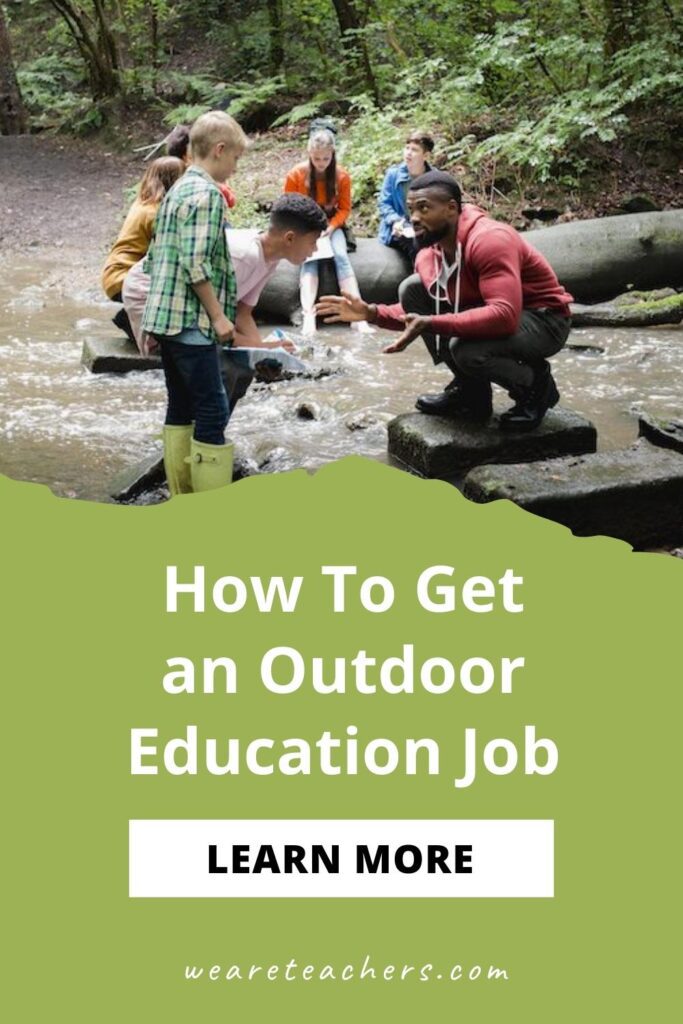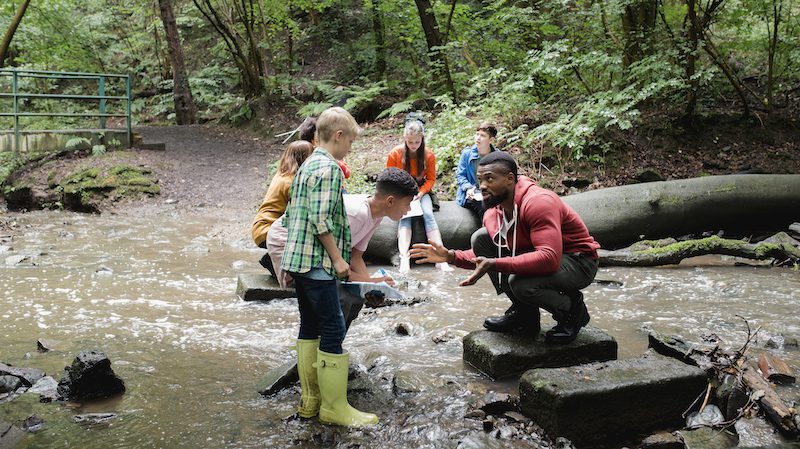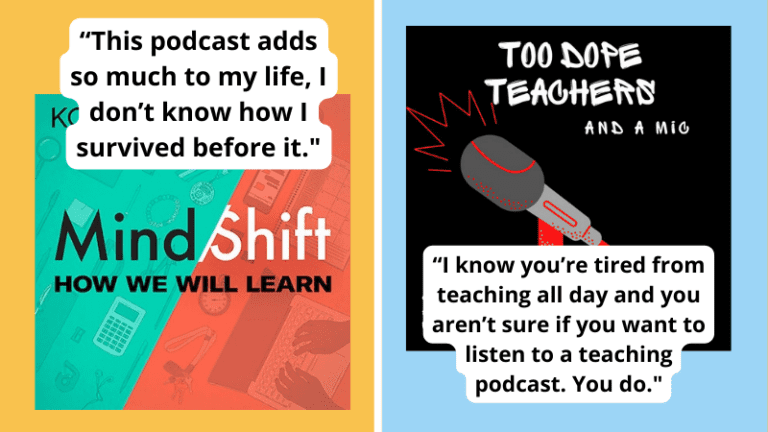With more and more classrooms heading outside—and staying outside—during the pandemic, outdoor education is on the rise. Perhaps your school is toying with the idea of a forest kindergarten or an outdoor learning area. Here are some ideas for where to start.
As an assistant director for a forest school program in Boulder, Colorado, I like to hire teachers first, nature-lovers second. Over the years, I’ve found that teachers can always learn more about nature, but you can’t necessarily teach educating outside. That’s where this type of learning and teaching really starts.
Thankfully, if you possess solid teaching skills, the path to getting an outdoor education job is a pretty simple one.
Training for an Outdoor Education Job
The United States has no required formal training to get an outdoor education job, but many schools do offer training. Take a look at the recommended options below, and consider your and your school’s needs before investing. The best training combines practical advice as well as interactive activities like fire building and working with tools.
In-Person Training for Outdoor Educators
The Rhythm of Learning in Nature conference — This weeklong conference, held in Ontario, covers so many aspects of working in nature-based schools, such as safe risk taking, tools and fire, land acknowledgment, documentation, and more. You also leave with a great network of outdoor educators and resources. Although this is not specific certified training, I highly recommend this conference.
Eastern Region Association of Forest and Nature Schools (ERAFANS) — This course is offered both online and in person (East Coast) and offers a Nature-Based Teacher Certification. In the course, you’ll learn about risk management, developmentally appropriate practices, licensing considerations, and much more.
The Wilderness Awareness School — The Wilderness Awareness School in Duvall, Washington, offers forest-based classes for adults to learn new skills like tracking, plant medicine, and bushcraft basics. They also offer more intensive training such as nature instructor training (done in person over the course of a school year as a teacher education program) as well as a Kamana Independent Study, which is an experiential four-level home study course aimed to guide learners to become skilled and knowledgeable naturalists.
Online Training for Outdoor Educators
Cedarsong Online training — Located in Vashon, Washington, Cedarsong is one of the first forest school programs in the United States. The online training includes a three-month hybrid course that consists of group Zoom calls, individual mentoring meetings, and assignments. There is also an introductory, self-directed foundations course.
Antioch University — One of the first of its kind, Antioch University offers a 13-month certificate in Nature-Based Early Childhood Education. The program includes policy development, business plans, curriculum documentation materials based on a Reggio Emilia philosophy, grant proposals, and parent newsletters. Courses include Nature-Based Early Childhood Curriculum, Working With Families and Community, and more.
Forest School Teacher Institute — These teachings are held completely over Zoom and are ideal for anyone looking to start their own nature-based school. “The trainings were in-depth and provided many resources that I can continue to use throughout my career,” says Jessica Gorusch, executive director for Wonderland Nature School in Gunnison, Colorado, who took the intro, teacher training, and director’s training.
Forest Schooled Online Learning — Recommended by Ryan Pleune, an outdoor educator in Denver and founder of the Féileacán Nature School Cooperative, the online training through Forest Schooled includes single online webinars like Introduction to Place-Based and Inclusive Storytelling as well as opportunities to join professional learning communities, like those that focus on growing your nature business.
Books and Resources for Outdoor Educators
Nature-Based Preschool Professional Practice Guidebook by NAAEE — I consider this guidebook by the North American Association for Environmental Education (NAAEE) to be the best place to start with an outdoor program or teaching outside. In fact, I and my staff reread it every year. It’s a quick and easy read that seamlessly covers all the main facets of a nature-based program. Check out the intro here.
Early Childhood Investigations Webinars — This database is a fantastic resource for all things teaching and has plenty of free webinars for nature-based education and outdoor play. All of the webinars are free and feature accomplished speakers. Watch recordings of past webinars, which include options like “Using a Guide to Nature Kinship to Infuse Nature Into Your Program,” “A Guide to Nature-Based Pedagogy for Early Childhood Programs,” and for directors, “Supporting Teachers in Nature-Based Programs.”
Forest Kindergartens: The Cedarsong Way — Authored by Erin Kenny, this book details her journey and philosophy with nature preschools, as well as approaches and day-to-day management of immersive nature experiences for young students. Overall, this book is a wonderful introduction to the why of getting kids outside.
Natural Start Alliance — A project of NAAEE, Natural Start Alliance is dedicated to enriching young minds in the outdoors. The site has member spotlights, conference information, webinar training, and more.
Any books by David Sobel — Author and professor emeritus in the Education Department at Antioch University, Sobel is lauded as being responsible for developing the philosophy of place-based education. His books range from philosophical design principles to highlights and stories from nationwide schools, as well as textbook-like options that dive into every day-to-day aspect of teaching outside. Other notable authors include Diane Kashin, Sara Knight, Claire Warden, Jane Worroll, and Jon Cree and Marina Robb.
Getting Started With Outdoor Education
Diving fully into an outdoor classroom or new role at a nature-based school can be daunting. What if you don’t actually like it? Thankfully, there are a few ways to get your toes muddy and test the legit waters.
Summer Camps
Most summer camps that run in the summertime occur mostly outdoors. Being a counselor is a quick way to see how you feel about teaching outside all day. Check out farm camps, gardening camps, nature camps, and adventure camps like mountain biking and hiking.
Nature Reserves
Find a local nature center and inquire about volunteering, shadowing, or helping with any classes they offer.
At Your Own School
If your school has a nearby natural space, talk to admin about taking students there for a weekly lesson. From there, extend that time outside to also include snacks or a longer activity. If that’s going well, aim for a Forest School Day once a month. This will give you a taste of teaching outside, and you’ll find out how receptive all parties are—the children, their parents, and the directors.
Ready to get an outdoor education job? The benefits for students are plentiful, and you might just find yourself never wanting to teach inside again!
Looking for more content like this? Be sure to sign up for our newsletters for the most up-to-date teacher tips out there!


